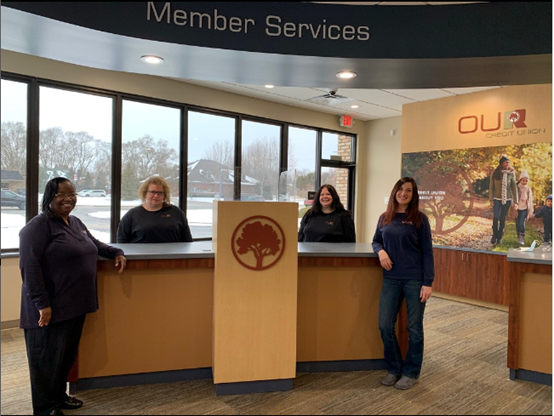Four Money-Saving Health Tips to Do Before You’re 25
Authored by: Grace Spears

Image credit: Pexels
Source: https://www.pexels.com/photo/person-putting-coin-in-a-piggy-bank-3848193/
In today’s dynamic and complex economic climate, being financially literate is paramount for young adults as they transition into independent and responsible individuals. However, a study by the TIAA Institute revealed that the current Generation Z individuals demonstrate low levels of financial literacy. While many resources on well-rounded financial literacy are available, most focus on technical aspects such as tax filing, smart spending, or debt management—typically without delving into health.
This is despite adults spending an average of $12,530 on medical expenses every year, which can be a large dent in finances without any savings. As such, it's important for any young adult to not only account for health savings as early as possible but also to find clever ways to better their health in order to prevent any costly expenses down the line. Below are four such money-saving health tips that can be considered before turning 25.
Don't forget your eye health
Among the best ways to avoid health problems down the road and save a lot of money in the long run is by understanding the importance of preventive care and making it a priority. With the advent of advanced technology and the ever-increasing use of digital screens, eye health has become a critical concern. With sight being the most valued sense, it is also considered a critical factor of preventive care.
As such, the best preventive care method is an eye exam as this helps identify potential vision problems, prevent long-term damage and screens for eye strain and other discomforts related to modern lifestyle habits. On top of this, it can catch different systemic diseases like diabetes and hypertension, allowing them to be managed and treated early. This greatly contributes to an individual’s well-being and quality of life. Fortunately, eye exams are also very accessible, with various clinics and optical companies offering them nationwide. Case in point: Target Optical has nearly 600 locations offering eye exams across the country. They also accept a variety of payment methods and insurance plans, making it ideal even for young adults in their early twenties.
Look into free workout options

Image credit: Pexels
Source: https://www.pexels.com/photo/women-and-man-exercising-at-home-8173452/
Maintaining physical fitness is crucial for overall health as it helps manage healthy weight, reduces the risk of diseases, strengthens bones and muscles, and improves the ability to do daily activities. However, exercising can be costly as gym memberships and fitness classes are expensive.
Fortunately, many cost-effective alternatives are becoming increasingly available, such as free fitness apps. There are also many online platforms and YouTube channels that offer free guided workout routines, which allow anyone to be able to exercise in the comfort of their own home. Additionally, outdoor activities such as hiking, swimming, or biking can provide excellent opportunities to stay fit without spending too much money.
By utilizing outdoor spaces, finding creative ways to exercise at home, exploring community resources, and engaging in group workouts, individuals can achieve optimal fitness while minimizing costs. This is particularly ideal for young adults who are still figuring out many aspects of their daily lives, as they can explore many options and find exercise routines suitable for them. Ultimately, exercising on a budget is not only feasible but also empowers individuals to take control of their health.
Adopt a meal-planning habit
Eating with consideration for one’s health is difficult on a budget, but it’s definitely possible with some effort and a little creativity. One of the best ways to save money and eat healthy is by planning meals ahead of time. This way, ingredients can be bought in bulk and can be cooked at home instead of frequent dining out or takeaway food. Grocery store companies like Albertsons have also been coming up with rewards and loyalty programs where members can get purchase discounts, digital coupons, and free grocery items. Similarly, earn-and-burn programs that involved point systems and exchanges have also risen in popularity as it allows consumers to save money while shopping. All these can be helpful with preparing meals and meal planning.
Meal planning doesn’t have to be complicated either, which is why it is a great habit to integrate as early as possible so you can carry it throughout the rest of your adulthood. It can be started by simply making a list of recipes to try and then breaking them down into ingredients you can purchase. Since you'll be cooking ahead of time, you can even use this time to bond with loved ones, which satisfies the socialization many young adults crave.
Open a dedicated savings account

Image credit: Instagram @ our_credit_union
Source: https://www.instagram.com/p/CnpyglWvx4p/
For those who want to save actual money for future health-related expenses, one of the best ways to do this is by opening a health savings account (HSA). An HSA is a special type of savings account that allows users to set money aside and withdraw it for medical expenses tax-free. Banks like the Bank of America service this type of account with no caps or time limits. It can be opened as soon as you're of legal age since the funds deposited in this account will remain regardless of external factors, like whether an individual’s health plans change or their job is switched in the future.
While opening an HSA is ideal, it has certain qualifications that not everyone meets—such as being qualified for a high-deductible health plan (HDHP), not being enrolled in Medicare, and not having any other medical coverage. For those who don’t qualify, there are also flexible savings accounts (FSA), which are accounts that are owned by employers and are funded through a voluntary salary reduction agreement between them and their employees. While this type of account does not have the same rollover benefits, it still provides access to significant tax-free savings for health expenses. Overall, opening a savings account can be a great way to reduce overall healthcare costs, especially for those who are able to invest the money in the account and let it grow over time.
Article written by Grace Spears
« Return to "Blogs"
